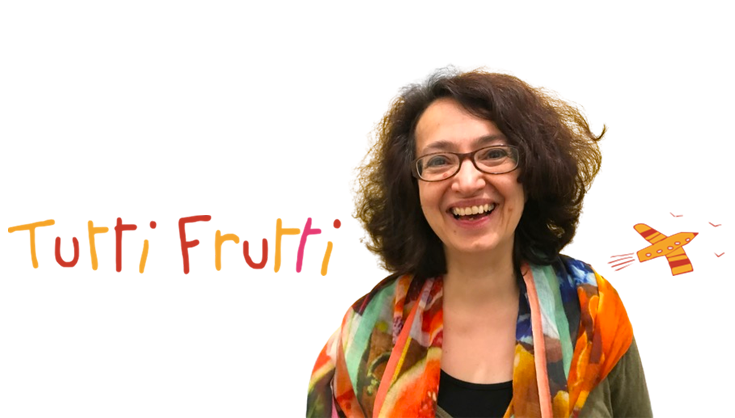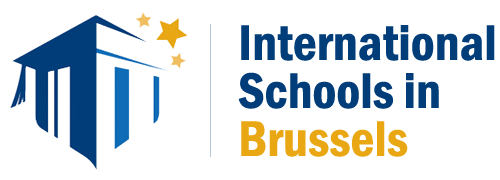
The founder of Tutti Frutti bilingual school, Ms. Pitisci, spent most of her life supporting the growth of multilingual children. Beyond leading the school, developing its pedagogy and philosophy and training its teachers, she published several books on the topic.
Interview with the founder of Tutti Frutti bilingual school
Based on your experience, is there a best time to start learning languages?
The sooner, the better!
We know that young kids are like sponges. However their brains are not yet fully developed. We need to give them time, support and a reassuring environment.
How long does it take a child to pick up a new language?
Oh, it’s a tricky question!
It depends on many parameters : the child’s maturity, interest, the duration of the exposure to the new language (how many times per week); if the child is unilingual, bilingual …
I would say we need at least one or two years to start to get familiar. That means to accept the foreign language (and to feel comfortable), to understand some key words and key sentences.
Of course, a child who is living in a new country will learn the new language quite quickly (after a few months, if exposed all the time to the foreign language).
I would also like to add a word on mixing languages: some parents may be reluctant to the idea of a bilingual education because children could mix languages -the verb “to mix” has often a negative connotation.
For me it is the magic of the linguistic creativity of a child. He/she will use the tools he/she knows and put them together in order to communicate.
Once I heard a child saying: “Je dois pipidoen” (“mixing” French and Dutch). In my opinion that’s very positive: he dared to ask something in a foreign language and he intuitively understood a grammar rule by putting the infinitive verb at the end of the sentence. He expressed himself in that way because he didn’t know the other way. It’s the “mission of the teacher” to reformulate the sentence in one language: “Ik moet pipi doen”.
What are the best methods to teach languages to young children? And what kind of environment fosters a positive and effective learning?
It’s delicate to say which method is the best.
For kids (and I’d add for adults as well) of course full immersion is effective but it isn’t sufficient in itself. It could even be destabilizing and a little bit frightening.
A bilingual approach is reassuring when starting in a new language and school environment or country.
The environment and the teacher’s attitude are essential : small classes (in my opinion, it’s impossible to apply an active pedagogy with huge groups), caring adults, warm atmosphere, interesting and varied activities. The children need to “make things”, to be active. Learning is positive and effective when children get actively involved in an activity. The results aren’t always immediate but will have good “benefits” (good fruits!) in a long-term perspective.
How many languages can a child learn/speak -comfortably-?
It’s also hard to give a precise answer to this question. I’ve seen kids struggling with a second language and others absolutely comfortable with five! What I often say to the parents, they need to accept it’s a long process. Let’s avoid putting pressure on children.
Slowly but surely. A Chinese proverb says that with patience we’ll see herbs becoming milk. On the other hand, it depends also on the child: his/her maturity, personality; if he/she feels happy and comfortable in new situations …
What language do you see kids using when they interact?
Do they only tend to use their mother tongue or switch between languages?
It depends a lot on friendships and… on fun activities!
I see children at our school (particularly primary and kindergarten pupils) switching easily from their mother tongue to another language.
What are the challenges you have seen with children that speak two or more languages and can you share ideas to overcome them?
Some children are perfectionists and won’t speak if it isn’t perfect!
Others prefer to observe: it doesn’t mean that they aren’t learning (it’s almost the opposite).
It could be more frustrating for adults. Hum… I’d advise the adults (parents or teachers): to be patient, to understand the child’s personality and what kind of intelligences he/she has (meaning what kind of learner he/she is), and of course to be supportive. It doesn’t mean to accept everything. On the contrary the framework needs to be clear (warm, positive but clear) for children (especially young ones).
You have taught children for the past 20 years, what changes have you seen from when you first started to now?
On one hand I’d like to say that children are the same! They want to play, to have the adults’ attention and trust.
On the other hand we (adults) think they have less attention or less candour…
Then I observe their enthusiasm: for instance in an activity such as a cooking class!! And I remain convinced that the substance is the same!
Could you tell us a bit about your school and its history?
Tutti Frutti was founded in 1997 as a language school for children aged 3 to 11 and in 2003 we opened the bilingual kindergarten (with classes in French plus a language of choice among English, German, Italian and Dutch). In2018 we welcomed our new ‘child’, the Primary school (French plus English or
German, for now…hopefully more languages in the future!).
In 2000, the European Commission and the “Communauté française de Belgique” awarded us with the European Language Label – an award encouraging the development of new techniques and initiatives in the field of language teaching and learning, as well as the enhancement of intercultural awareness.
How do you see TF’s future?
I still have so many dreams for Tutti Frutti!
First of all, to be recognised and supported would be an important milestone.
That would enable us to further innovate, continue to improve the quality, support the teaching staff,
publish new books, propose more outdoor activities to children… And who knows, maybe one day to have a bigger structure!
This interview comes from an article written by Francesca Furlani available here
